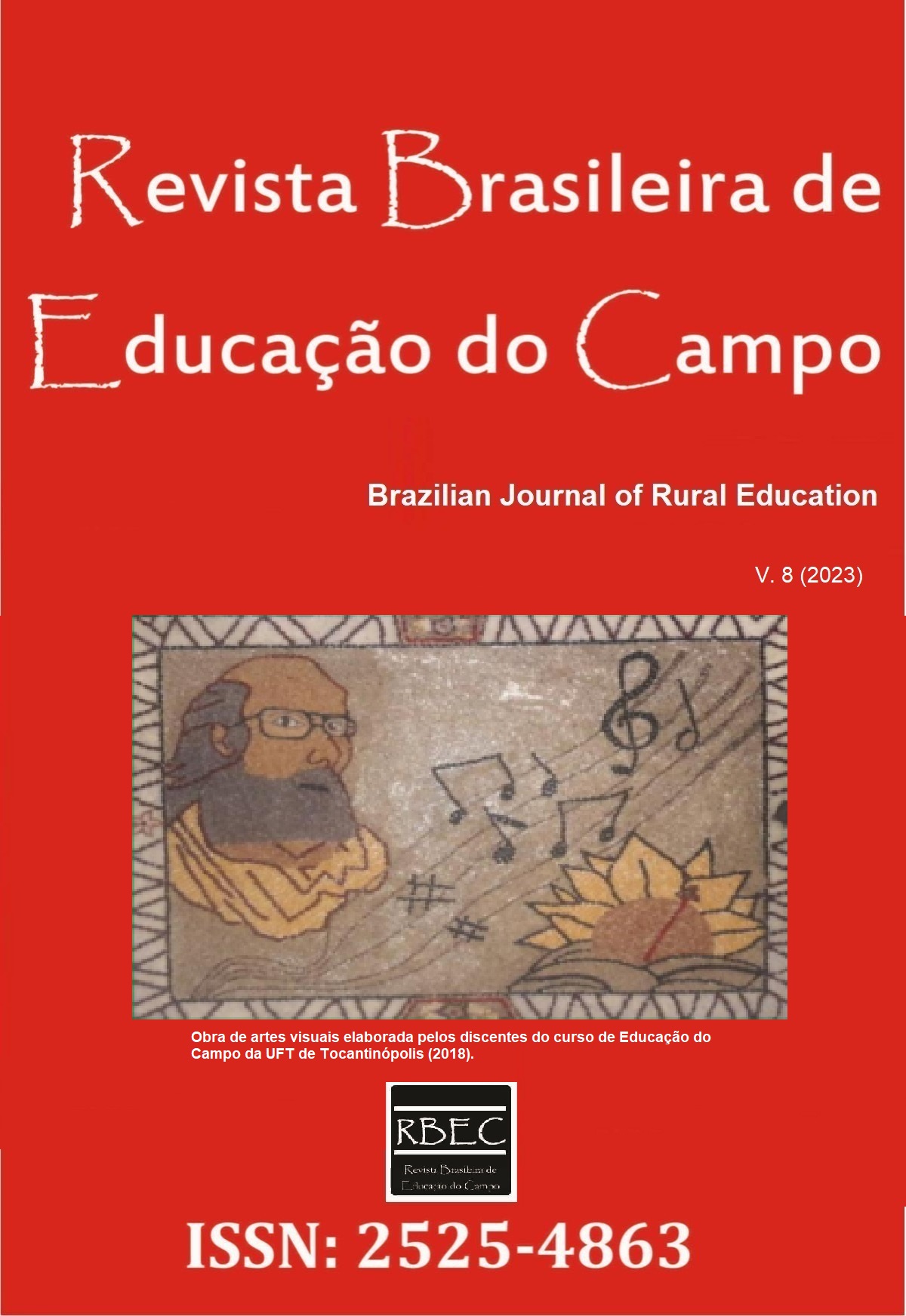Continuing training actions for teachers of Early Childhood Education in the municipal network of Tocantinópolis in the period 2016-2021
DOI :
https://doi.org/10.20873/uft.rbec.e15595Résumé
ABSTRACT. The article aims to analyze the continuing education actions developed with Early Childhood Education teachers working in the municipal network of Tocantinópolis, from 2016 to 2021, in the light of the following documents: Base Nacional Comum Curricular (BNCC); Tocantins Curriculum Document (DCT) and the Municipal Education Plan (PME). Documentary research was adopted as a type of research, with a qualitative approach. The data production materials consisted of slides, reports and frequencies produced during the continuing education actions in the educational reality investigated, and a bibliographical survey was also carried out to support the theme, and an analysis of legal documents that guide the organization of Education Childhood in its various dimensions. In view of the analyses, it is understood that the training seeks to enable teachers to develop the goals set forth in the documents, it is a preparation for the operationalization of what is provided by them. A gap was observed regarding the critical positioning of the participants regarding the form of structuring, content of training actions and institutionally directed referrals. It is concluded that continuing education for Early Childhood Education is a great challenge, mainly from the alignment with documents such as the BNCC, which situates contemporary debates in the educational field and has been the subject of extensive discussions in the area.
Téléchargements
Références
Base Nacional Comum Curricular. (2018). Brasília. Recuperado de: http://basenacionalcomum.mec.gov.br/
Chimentão, L. K. (2009). O significado da formação continuada docente. In Anais da 4 CONPEF- Congresso Norte Paranaense de Educação Física Escolar (pp. 1- 6). Paraná.
Documento curricular Tocantins Educação Infantil (2019). Tocantins. Recuperado de: https://central3.to.gov.br/arquivo/478046/
Fonseca, J. J. S. (2002). Metodologia da pesquisa científica. Fortaleza: UEC.
Kramer, S. As crianças de 0 a 6 anos nas políticas educacionais no Brasil: educação infantil e/é fundamental. (2006). Rev. Educ. Soc., 27(96), 797-818.
Lei n. 9394/96, de 20 de dezembro de 1996. (1996, 23 de dezembro). Estabelece as Diretrizes e Bases da Educação Nacional. Brasília: MEC.
Prada, L. E. A., Freitas, T. C., & Freitas, C. A. (2010). Formação continuada de professores: alguns conceitos, interesses, necessidades e propostas. Rev. Diálogo Educ., 10(30), 367-387. https://doi.org/10.7213/rde.v10i30.2464
Pinto, C. L. L., Barreiro, C. B., & Silveira, D. N. (2010). Formação Continuada de Professores: ampliando a compreensão acerca deste conceito. Revista Thema, 7(1), 1-14.
Referencial curricular nacional para a educação infantil (Rcnei). (1998). Ministério da educação e do Desporto. Secretaria de Educação Fundamental. Brasília – MEC/SEF.
Relatório de Avaliação do Plano Municipal de Educação de Tocantinópolis, Lei Municipal Nº 963, de 19 de junho de 2015. (19 de junho de 2015). Tocantinópolis – To.
Silva, M. J. A. (2017). Formação continuada de professores da educação infantil: diferentes paradigmas e a pedagogia crítica. In Anais do XIII Congresso Nacional de Educação – EDUCERE (pp. 3875 – 3888), Curitiba.
Tardif, M. (2002). Saberes docentes e formação profissional. Petrópolis, RJ: Vozes.
Téléchargements
Publié-e
Comment citer
Numéro
Rubrique
Licence
© Zilma Ferreira de Oliveira, Juliane Gomes de Sousa 2023

Cette œuvre est sous licence Creative Commons Attribution 4.0 International.
Proposal for Copyright Notice Creative Commons
1. Policy Proposal to Open Access Journals
Authors who publish with this journal agree to the following terms:
A. Authors retain copyright and grant the journal right of first publication with the work simultaneously licensed under the Creative Commons Attribution License that allows sharing the work with recognition of its initial publication in this journal.
B. Authors are able to take on additional contracts separately, non-exclusive distribution of the version of the paper published in this journal (ex .: publish in institutional repository or as a book), with an acknowledgment of its initial publication in this journal.
C. Authors are permitted and encouraged to post their work online (eg .: in institutional repositories or on their website) at any point before or during the editorial process, as it can lead to productive exchanges, as well as increase the impact and the citation of published work (See the Effect of Open Access).














